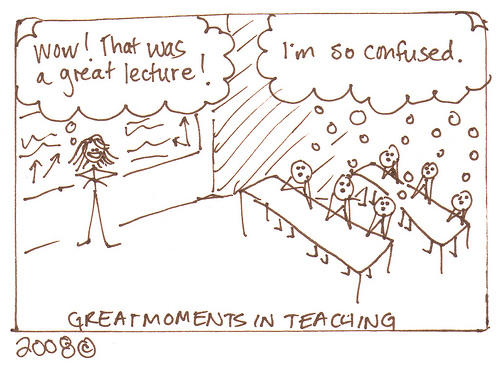All lectures
I can’t embed the lectures in this website. They are password protected. But I’ll put the canvas links here.
Week 1 slides & Week 1 recording
Further reading for those interested includes:
- Performance tips
- Deeper thoughts on memory management in Julia (and in general)
- Jax (JIT compiled Numpy with many extra goodies)
- Alternatively/additionally check out the excellent 3blue1brown videos on linear algebra. Skip the videos on cross products and Cramer’s rule.
- More insight on zero probability events and probability density functions
Some links on reading mathematics that I thought were good: (there are lots online, of variable quality)
- Two page summary
- The top google result (which I nevertheless thought was insightful)
Some links on probability from, as usual, 3blue1brown. The overall course is here. I recommend watching the entire thing if you have time and want to best understand probability. We couldn’t cover all the basic topics in probability theory due to time constraints, so here are some videos particularly relevant to the lectures of the last two weeks:
- Central limit theorem intuition
- More central limit theorem intuition
- Bayes theorem
- Zero probability events are not impossible
Week 7 & Partial recording (slides) & Partial recording (audio and room view)
Panopto wasn’t fully working on the main screen this week, so the slides aren’t visible on the room view recording. Instead, I also did a simultaneous recording on my laptop.
Week 7 had a lot of content. A static, 1hr lecture is not the best way to parse it. I encourage you to watching the following videos, which have animations of the concepts, and collectively don’t take much longer than an hour. Collectively, they cover all of week 7
Derivative formulas for basic functions (this is less important)
We talked about multivariable calculus at the end. This is hard to get your head around. If you’re struggling with the previous concepts, leave it. Better to spend your time understanding the above fully. If you’d like to go for it, look below:
Dynamical systems was a lot of content for two weeks. It can seem overwhelming. Here are some resources that might help:
Two terse blog posts that summarise the stability theory we did (A and B)
A great free online book. The first 30 pages are useful. So are pages 125-134 for 2d systems such as the mass spring oscillator from class.
Note that many online resources will talk about Taylor series expansions. This is just the approximation $$f(x + \delta x) \approx f(x) + \delta x^T \frac{\mathrm{d}f}{\mathrm{d}x}(x) + \dots $$, which we got when deriving the finite difference approximation of the derivative. The dots are complicated expressions that get very small as $$\delta x \to 0$$.
Other tips if you’re time constrained:
- skip the interlude in the week 7 notebook, on numerical error in the forward euler algorithm
- skim notebooks 7 and 8 before doing the questions. play with the sliders to get some intuition on phase portraits first.
If you’ve already done this stuff and find it boring: I recommend going through the Strogatz book
I’ve made a lecture companion notebook that goes through the workings/plots of the lecture
The lecture companion also has links to two youtube videos that illustrate the concepts introduced today, nicely.
If you really wanted to stretch yourself and understand the massive, practically, important field of convex optimisation, you would read this 700 page book, which would be required reading if you were to do a PhD on the topic.
Obviously this would be a pretty niche interest. But in any case the short introduction of the book is worth reading.
Two youtube videos 1 and 2 that are also embedded in the lecture companion.

Attribution: Brown sharpie (Courtney Gibbons)